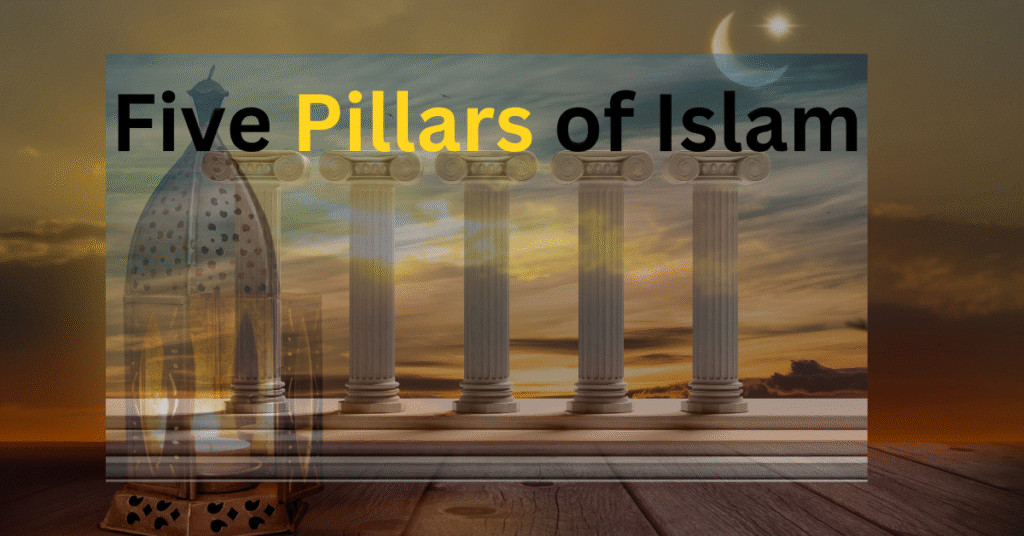
🕌 The Five Pillars of Islam: Foundations of a Faithful Life
Islam, one of the world’s major religions, is built on a strong spiritual and practical foundation. At the heart of every Muslim’s life are The Five Pillars of Islam—core beliefs and practices that shape their faith, character, and connection with Allah (God).
Whether you’re learning about Islam for the first time or looking to deepen your understanding, this post explores the five pillars and their importance in the life of a Muslim.
🌙 What Are the Five Pillars of Islam?
The Five Pillars of Islam are:
- Shahadah (Faith)
- Salah (Prayer)
- Zakat (Charity)
- Sawm (Fasting in Ramadan)
- Hajj (Pilgrimage to Makkah)
Let’s explore each one in detail:
1️⃣ Shahadah (Faith – Declaration of Belief)
“There is no god but Allah, and Muhammad is the Messenger of Allah.”
This is the basic creed of Islam. By reciting the Shahadah with sincerity, one becomes a Muslim. It reflects a total submission to the one true God and the acceptance of Prophet Muhammad (peace be upon him) as His final messenger.
Why It Matters:
Shahadah is the entry point into Islam and the foundation upon which the other pillars stand.
2️⃣ Salah (Prayer – 5 Times a Day)
Muslims are required to pray five times daily:
Fajr, Dhuhr, Asr, Maghrib, and Isha.
These prayers provide a direct connection between the believer and Allah.
Why It Matters:
Prayer strengthens spiritual discipline, brings peace to the heart, and reminds Muslims to stay mindful of their purpose in life.
“Indeed, prayer prohibits immorality and wrongdoing…” – Quran 29:45
3️⃣ Zakat (Charity – Purification of Wealth)
Muslims who are financially able must give 2.5% of their savings each year to the poor and needy.
Why It Matters:
Zakat purifies one’s wealth and soul, promotes economic fairness, and supports social welfare.
4️⃣ Sawm (Fasting – Especially in Ramadan)
During the month of Ramadan, Muslims fast from dawn to sunset, abstaining from food, drink, and immoral behavior.
Why It Matters:
Fasting teaches self-control, gratitude, empathy for the less fortunate, and spiritual renewal.
“O you who have believed, fasting is prescribed for you as it was prescribed for those before you that you may become righteous.” – Quran 2:183
5️⃣ Hajj (Pilgrimage to Makkah – Once in a Lifetime)
Every Muslim who is physically and financially able must perform Hajj at least once in their lifetime. It takes place in Makkah, Saudi Arabia, during the Islamic month of Dhul-Hijjah.
Why It Matters:
Hajj is a symbol of unity, humility, and equality before Allah. Millions gather from all over the world, dressed in simple white garments, to worship together.
🌟 Why Are the Five Pillars Important?
These pillars are not just rituals—they represent a comprehensive way of life. They nurture a Muslim’s relationship with Allah, foster compassion and community support, and build moral character.
The Five Pillars of Islam are essential for spiritual growth, personal discipline, and social harmony. They guide Muslims in every aspect of life—faith, worship, generosity, self-control, and unity.
Understanding these pillars not only helps Muslims live meaningful lives but also fosters interfaith respect and understanding.



